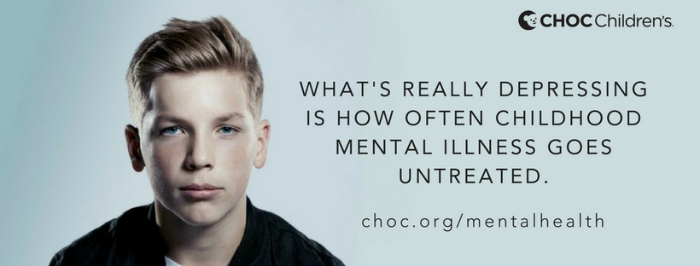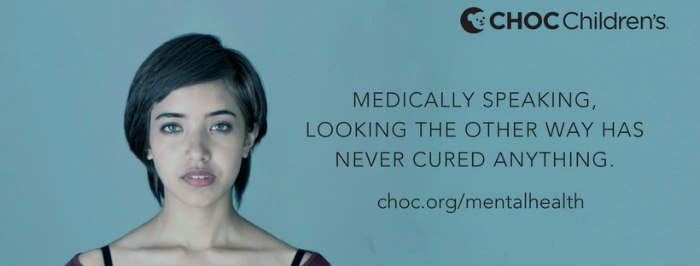Disclosure: CHOC Children’s is a Tiny Oranges Partner
This post will hopefully explain any questions you might have about taking a child to see a therapist thanks to the expert advice of Dr. Carlos Konishi Ph.D., a pediatric psychologist at CHOC Children’s. We will cover how to find a therapist for your child, what to prepare for your first session, some questions you might want to ask and most importantly, how to know you have found a good one.
Kids’ mental health. We need to talk about it.
But there are still stigmas and misinformation around mental health because we don’t understand mental illness like we do physical illness.
If your child was complaining about a persistent physical pain, what would you do?
Make an appointment with your doctor.
You probably wouldn’t even think twice about it, right?
What if you noticed persistent and noticeable changes in your child’s emotional or mental state or behaviors, what would you do?
The answer is not as clear as a physical ailment, is it?
But it should be.
Make an appointment with your therapist.
If you have never seen a therapist before, the idea of taking your child to one might seem daunting. But it doesn’t have to be. The first step is often the hardest but the end results will be well worth it.

Here are some of the questions I had for Dr. Konishi. If you have any to ask him, please comment below!
My child needs therapy, where do I start? How do I even find a therapist?
“The best place to start is often with your pediatrician who can give you a referral or provide you with list of providers contracted through your insurance. When researching therapists for your child, it is extremely important to find someone who specializes in working with children, because it takes a specific skill set. It is also helpful to see if the provider has experience working with the issue you are seeking treatment for,” Dr. Konishi explained.
I made an appointment, do I need to prepare anything for our first meeting?
“Just like an initial doctor’s appointment, there will be a good amount of paperwork to complete prior to the first session. It is helpful to ask if you can get the paperwork ahead of time to allow you to arrive with everything filled out,” he suggested.
You can also bring in any information that will help the therapist learn more about your child.
“Documents like IEP’s, grades, special testing results, teacher or coach feedback, any information that will help the therapist get a more complete picture of your child is extremely helpful.”
He also recommended writing down any questions you have for the therapist before going in so you can leave with all your questions answered.
To that point, what questions are good to ask the therapist?
Along with the questions you come up with, Dr. Konishi said there are some good ones to address in the first session:
How often will we meet?
Will the sessions include both myself and my child? Or will you also want to meet with us alone?
What are the specific goals of therapy?
How are we going to be able to identify progress in a way we can objectively track?
What’s the best way to communicate with you if I have questions or concerns in-between sessions?
Which led me to my next question..
How do I explain therapy to my child?
Dr. Konishi said you can simply describe therapy as going to see a person whose job it is to help them feel better.
“Some parents have helped prepare their child for a first therapy visit by comparing a psychologist to a school counselor. Most students know who a school counselor is and usually have a positive impression of them,” he explained. ” They also understand that they are there to help, even if they have not gone and seen one themselves. Using this example can help remove the fear of the unknown.”
For those who like books as conversation starters, he suggested a book called “Feeling Better” about therapy on Amazon (affiliate link) you can get and read together with your child.
If your child is older, like tween or teenager, “It might be a good idea to ask them what they would like to get out of therapy and what their goals are? This gives them ownership and power over the process,” he said.
What should I expect in the first session with my child?
“The first session is typically spent building rapport with the child and family while gathering information about the child’s strengths, interests and life situations.”
The therapist will also likely cover any relevant history like asking about any family history of mental illness, traumas, developmental or social delays, etc.
It might seem very personal but all of this information will help the therapist devise a plan for therapy and treatment that will be most effective for your child.
“It is important to know that everything said in a therapy session, barring any information about the child being a danger to him or herself, to others, or being the victim of acts that put the child in danger, are kept strictly confidential by HIPPA law,” Dr. Konishi stressed.

How long will it take for therapy to work?
“It is really important for parents to exercise patience when assessing the effectiveness of therapy. The first 2 – 3 sessions are generally spent building rapport with the child and making them feel comfortable,” he expressed.
Before making any knee-jerk reactions or conclusions about therapy not working, he said to give it at least 5 sessions and sometimes it might even take up to 10 before you might start to notice any improvements.
“Change is hard for anyone, and changes do not happen overnight, so it is important to trust the process and give it some time before evaluating.”
What if I don’t think therapy is working for my child?
The most important component of therapy is having open communication with your therapist about the things that are working but also any concerns you might have.
“Knowing this information gives the therapist insight and opportunity to tweak their approach,” he explained.
But Dr. Konishi, isn’t it insulting to tell my therapist if I don’t think they are being effective for my child? The therapist is the expert after all, right?
“Yes, therapists are experts in how to work with certain problems and behaviors, but you are the expert when it comes to your child,” he clarified.
No one else on this planet knows your child like you do, so it is absolutely appropriate to share feedback with your therapist.
How do I know if I have found a good therapist?
Your therapist should make you and your child feel comfortable and be able to lay out specific goals for therapy so you can work together to meet these goals and help your child feel better.
“A good therapist should view therapy as a collaboration between the child, the child’s parents and the child’s medical team with the goal of treating the whole child, mind AND body. Collaboration takes communication, so it is important to communicate with both your therapist and your doctor what is going on with your child to give them better insight in treating your child most effectively,” he stressed.
Lastly, a good therapist will also be open to hearing your honest feedback and work together with you on the best way to treat your child.
Any final notes?
Dr. Konishi answered, “Don’t expect perfect progress. Therapy doesn’t work that way.”
It’s not like taking an antibiotic for an infection, where you take it for 10 days and you are done. Therapy is a series of progress and setbacks. You might see some steps moving forward, but then a life stressor or situation might arise, and you might see a few steps back.
“What’s important is you continue to communicate these life circumstances so your therapist can integrate proper coping tools to help get the child back moving in the right direction.”
If you would like to learn more about CHOC Children’s Mental Health services and programs please visit www.choc.org/mental-health.



